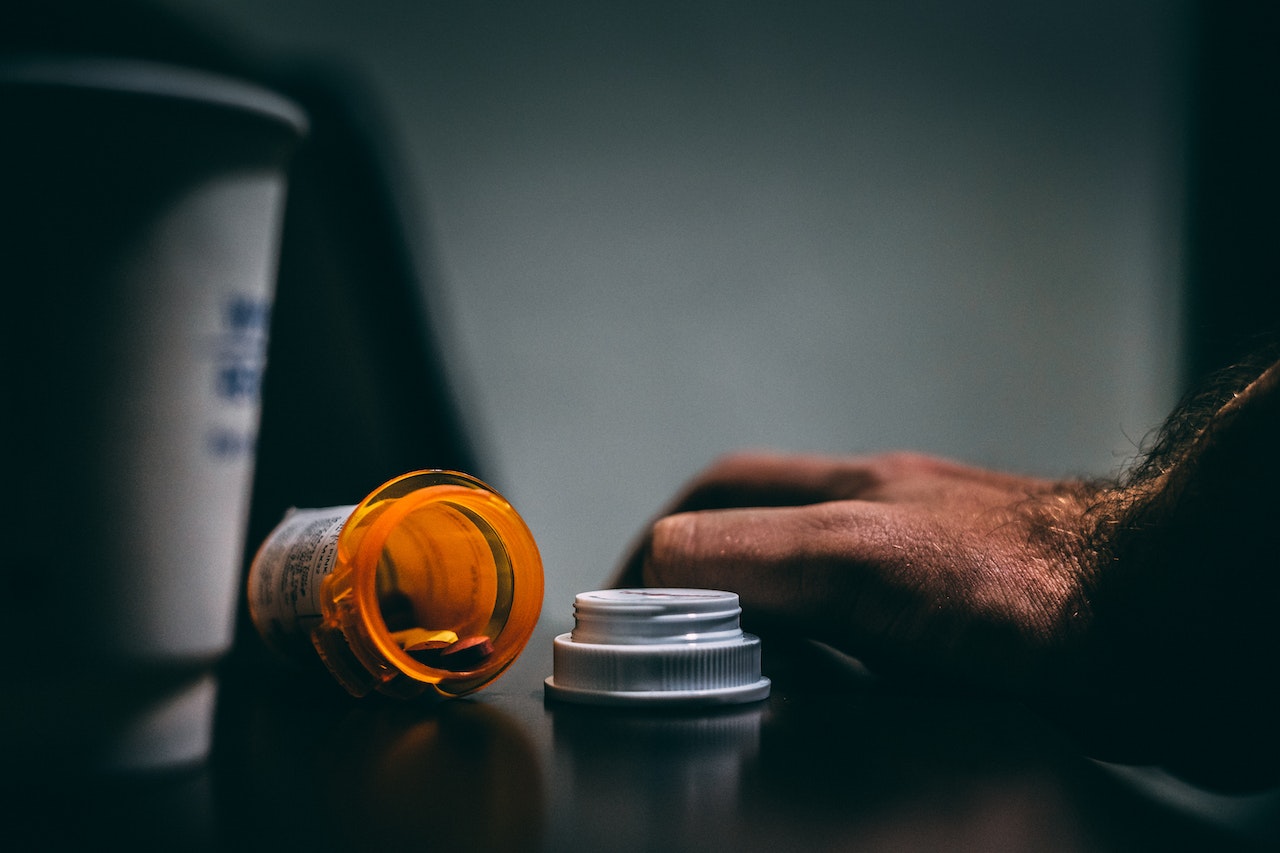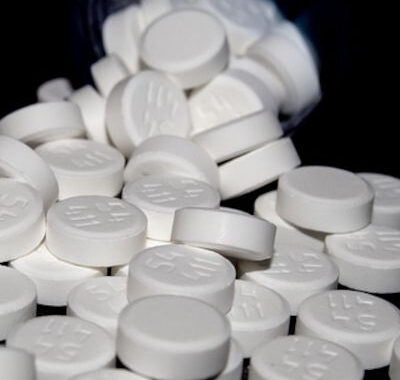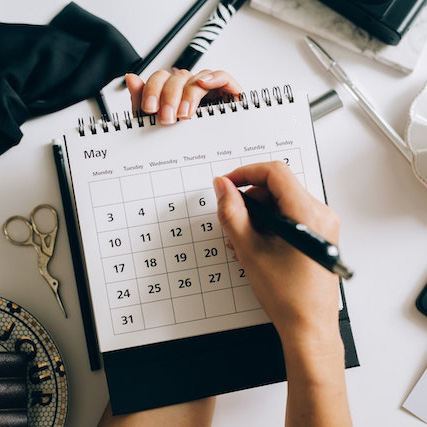
Oxycodone Withdrawal Symptoms and How to Successfully Detox
Oxycodone is a prescription drug often used in hospitals, medical centers, and health clinics. It falls into a class of drugs known as opioids and is generally prescribed to treat severe symptoms of pain and discomfort.
While opioids such as oxycodone are effective for treating pain after an accident, surgery, or other medical procedure, they are also highly addictive. As such, you can get addicted to oxycodone even though a doctor has prescribed it.
If you or someone you love has become addicted to oxycodone and wants to stop, you’ve come to the right place. This article will look at everything you need to know about oxycodone withdrawal symptoms, the detox process, and how to detox successfully. We will also compare detoxing on your own versus receiving professional assistance during detox, and what would be most beneficial.
Table of Contents:
Why is oxycodone so addictive?
Oxycodone is a prescription opioid known as an analgesic narcotic because it is used in the medical field. This drug sends signals to your central nervous system, specifically affecting your opioid receptors. When you are in pain, oxycodone intercepts and disrupts the nerves sending pain signals from the brain to the body. By interrupting and disrupting these nerve signals, oxycodone tricks the brain into thinking you are not in pain.
This is how all pain medications work, but oxycodone is more powerful and effective than most. Eventually, oxycodone can severely alter your nerve signals and receptors, making your brain think it needs oxycodone to function normally.

Additionally, when you use oxycodone for a prolonged period, you can get addicted to the euphoria and relief you experience. You may also start developing a tolerance to oxycodone and have to take increasingly larger doses to achieve the desired effect.
When this happens, you become physically or mentally reliant on oxycodone, resulting in a growing need and eventual addiction.
Common oxycodone withdrawal symptoms
Oxycodone withdrawal happens because your body has become dependent on the euphoria and pleasure you experience when you ingest the drug.
A sign of addiction is when you cannot control your need and desire to take oxycodone, even though it is causing harm to your mind or body.
If you or someone you love is addicted to oxycodone and wants to stop using it, you will have to go through a process known as withdrawal or detox. Withdrawal symptoms happen because your body has become dependent on oxycodone and is craving it. When your body doesn’t get what it thinks it needs, you can experience painful, uncomfortable physical and psychological pain.
Physical symptoms
The physical symptoms of oxycodone withdrawal occur not necessarily because you’re no longer taking your pain medication but because of your body’s reaction to the sudden lack of oxycodone.
Because of this sudden change, you may experience some or all of the symptoms of oxycodone withdrawal. You’ll experience these symptoms within the first 24 hours of when you last took oxycodone.

- Nausea
- Vomiting
- Diarrhea
- Body aches and pains
- Full body chills
- Spikes of fever
- Excessive bouts of sweating
- Teary eyes
- Runny nose
- Accelerated heart rate
- Raised blood pressure
- Excessive yawning
These symptoms will be bad but not as severe or dangerous as those you’ll experience from hours 24 through 72, including the following:
- Increased feelings of nausea
- More intense fever and flu-like symptoms
- Dangerously high heart rate and blood pressure
- Dilated pupils
- Abdominal cramping
- Blurry vision and potential hallucinations
The worst of your symptoms typically occur between days 2 and 3. While your symptoms may continue for several days or weeks, they are generally diminished and more manageable.
Psychological symptoms
In addition to painful physical symptoms, you may also experience uncomfortable, confusing, and painful psychological symptoms. This happens because oxycodone affects your brain just as much as it does your body.
Here are some of the most common psychological symptoms of oxycodone withdrawal.
- Agitation
- Irritation
- Hallucinations
- Insomnia and sleep difficulties
- Stress
- Anxiety
- Depression
- Anger
- Mood swings
- Confusion
- Inability to concentrate or focus
You may start to experience these symptoms within 12 to 24 hours of when you last took oxycodone. Symptoms start gradually and worsen around the hour mark 48 through 72. However, if you can make it to the three-day mark, your symptoms will decrease and eventually disappear within one to two weeks.
Timeline for oxycodone withdrawal
Because oxycodone is a prescription drug, you’ll first start to experience withdrawal symptoms within 8 to 12 hours of your last missed dose.
From there, the symptoms gradually increase for two to four days before slowly subsiding after one to two weeks.
However, everyone’s timeline and withdrawal symptoms differ and depend on several factors.
- How long you’ve been taking oxycodone
- How high has your tolerance become
- How often you took the drug throughout the day
- Your method of taking oxycodone
- How severely you misused oxycodone
- Whether or not you mixed oxycodone with other drugs or substances

Regardless of the factors above, most people will be over the worst of their symptoms within one to two weeks of when they last took oxycodone. However, it is possible to experience lingering symptoms, known as post-acute withdrawal symptoms, for up to two years after quitting your addiction.
Understanding oxycodone half-life – how long does oxycodone last?
The half-life of a drug is the amount of time it takes for 50% of the drug to process through your body.
When discussing the half-life of drugs, it’s important to remember that this average is based upon an average dose of the drug in an overall healthy body. In other words, if oxycodone was already in your system when you took your last dose, if you took a very high dose, and/or if you have other medical conditions, oxycodone will remain in your system longer.
The half-life of an average dose of oxycodone in an otherwise healthy individual is 3-6 hours.
The detection window of oxycontin – How long does oxycodone stay in your system?
In order to best understand how long you will test positive for oxycodone, it’s important to understand the detection window. This term refers to the average amount of time there is enough of the drug in your system in order to trigger a positive test result.
Testing negative doesn’t mean the drug is entirely clear of your system, there just was less than the cut off value of the test.
As with half-life, these time periods may be longer for those who take frequent/high doses, or who have other medical conditions. You should also note that oxycontin is an extended-release form of oxycodone, which may further extend these timeframes.
Urine test
The detection window of oxycodone in a urine test is 3-4 days. People with health conditions affecting the liver and/or kidney should expect much longer detection periods, as much as double the average.
Blood test
Oxycodone has the quickest detection window for blood tests, clearing the system in as little as 24 hours.
Saliva test
Saliva drug tests can detect oxycodone for 1-4 days after the last dose is consumed.
Hair test
Hair drug tests offer the longest detection windows for oxycodone of up to 90 days after the last dose.
The best strategy to get a negative drug test
If you are currently taking oxycodone as part of treatment under the supervision of a doctor, you should discuss any upcoming drug screening you have with them right away. They can guide you in either submitting disclosures regarding your prescriptions, or providing you with the documents necessary to adjust or reschedule your screening.
If you have become dependent on oxycontin, addressing your addiction can help you not only pass your drug screening but empower you to tackle other addiction-related problems you may be facing.
Withdrawal from oxycodone can be dangerous, so it’s important to reach out to your support network and an addiction expert who can help you safely begin the road to recovery.
What is OxyContin?
OxyContin is a powerful opioid pain medication that is designed for the management of severe pain that requires continuous, around-the-clock treatment.
OxyContin is a potent opioid pain medication that works by binding to specific opioid receptors in the brain and nervous system, which alters the body’s perception of and response to pain. This mechanism provides significant relief for severe, around-the-clock pain that cannot be properly managed with other treatments.
OxyContin was first introduced to the market in 1995 by Purdue Pharma and was developed to address the need for long-term pain management with a single medication capable of providing extended, ongoing relief. Its active ingredient, oxycodone, has been used in various pain relief formulations since its synthesis in Germany in 1916. What sets OxyContin apart is its controlled-release formula, which maintains steady levels of pain relief over extended periods, typically 12 hours, which reduces the need for frequent dosing.
The development and introduction of OxyContin represented a major advancement in the field of pain management, offering a new option for patients with chronic pain conditions. However, understanding how OxyContin and generic OxyContin work on the body is very important because of its high potential for addiction and dependence. The ability of OxyContin to significantly impact the central nervous system’s pain signals makes it both a valuable medical resource and a substance that requires strict monitoring in its prescription and use.
Medical Uses of OxyContin
OxyContin is available in various dosage forms and strengths, including 10mg, 20mg, 30 mg, 40mg, and 80mg tablets. This range of dosages allows healthcare providers to specifically tailor the dosage to the individual needs of patients, ensuring that there is effective pain relief while also minimizing the potential for side effects and dependency. The choice of dosage is carefully determined based on the patient’s previous opioid use, current pain level, and overall health status.
In addition to its use for continuous pain management, OxyContin plays an important role in managing breakthrough pain — sudden flare-ups of severe pain that occur despite ongoing pain medication. For patients already on a regular OxyContin regimen, addressing breakthrough pain may involve adjusting the overall pain management strategy rather than increasing the dosage of OxyContin alone. This approach helps to maintain pain control while avoiding the unnecessary escalation of opioid use.
The Science Behind OxyContin
OxyContin has an analgesic, pain-relieving effect that works by binding to mu-opioid receptors in the central nervous system. This binding begins a process of biochemical events that lead to the pain pathways in the body being blocked, the perception of pain being decreased, and an increased pain tolerance. The active ingredient, oxycodone, is a semi-synthetic opioid derived from thebaine, an alkaloid found in the opium poppy. It is effective in pain management because of its potent agonist activity at these mu-receptors, which are crucial components of the body’s pain-modulating system.
One of the most important factors that contribute to OxyContin’s ability to manage severe pain is its controlled-release mechanism. It is coated in a formulation that is designed to dissolve very slowly, and therefore, OxyContin delivers the active ingredient oxycodone over an extended period of time that is typically up to 12 hours.
This controlled-release system ensures that there are always therapeutic concentrations of oxycodone in the bloodstream, providing consistent pain relief and reducing the need for multiple doses throughout the day. This is particularly helpful for patients with chronic pain conditions as it provides them with a more stable pain management regimen.
Risks and Side Effects
OxyContin has several potential risks and side effects that patients and healthcare providers must be aware of.
Common OxyContin side effects include:
- Nausea
- Vomiting
- Constipation
- Drowsiness
- Dizziness
- Dry mouth
To manage these side effects, patients may be advised to eat plenty of dietary fiber, drink sufficient amounts of water, and engage in light exercise to help reduce the symptoms of constipation. For nausea, eating small, frequent meals or using anti-nausea medications can help. Drowsiness and dizziness often decrease as the body adjusts to the medication, but patients should avoid driving or operating heavy machinery until they know how OxyContin affects them.
A more significant concern with OxyContin use is the risk of dependence and addiction. OxyContin’s action on the brain’s reward system can lead to physical dependence, characterized by withdrawal symptoms when the medication is reduced or stopped. Addiction is a psychological condition that involves the compulsive use of the drug despite harmful consequences. To help minimize these risks, it’s very important for healthcare providers to carefully assess each patient’s pain management needs and history of substance use before prescribing OxyContin. Prescriptions should be for the lowest effective dose and the shortest duration possible to manage pain.
Safety measures and monitoring are extremely essential for patients on OxyContin therapy. Regular follow-ups with healthcare providers will allow for the assessment of the medication’s effectiveness, provide better side effect management, and allow for the adjustment of dosages if necessary. Patients are also advised to keep a detailed medication diary, noting their pain levels, side effects, and any concerns to discuss during their medical appointments. This can help minimize excessive use of OxyContin and addiction.
Healthcare providers may implement specific strategies such as pill counts, prescription monitoring program checks, and urine drug screenings to detect the misuse of OxyContin. Educating patients and their families about Oxycontin, the signs of overdose, and the availability of naloxone, an opioid overdose reversal agent, is also a critical safety measure.
Navigating OxyContin Treatment
Navigating OxyContin for pain treatment requires a careful and informed approach, both when starting therapy and when discontinuing it. When beginning OxyContin for pain management, it’s essential for patients to closely follow their healthcare provider’s instructions, starting with the lowest effective dose to manage pain while minimizing the risk of side effects and dependency. Patients should be aware of the potential for addiction and ensure they understand how to take their medication correctly, including not exceeding prescribed doses.
Discontinuing OxyContin therapy needs to be managed just as carefully to avoid withdrawal symptoms. Gradual tapering under medical supervision is essential for safely reducing dependence on medication. For those transitioning from OxyContin to other pain management strategies, such as from oxycodone to buprenorphine, a structured plan developed by healthcare providers can help create a smoother switch, ensuring ongoing pain control while reducing the risks of withdrawal symptoms.
Resources for addiction help and support can provide help for patients who are dealing with dependency issues or anyone who is concerned about getting off OxyContin. Many organizations offer support, counseling, and treatment programs designed to help individuals overcome opioid addiction. Patients can also benefit from discussing the availability of OxyContin coupons with their healthcare providers or pharmacists, who may be able to provide a discount to make their prescribed treatment more affordable.
While finding OxyContin for sale is possible through various channels, it’s crucial to obtain and use the medication strictly through legitimate, prescribed means. This ensures the quality and safety of the drug being used and reduces the risk of misuse.
Legal and Regulatory Perspectives
OxyContin’s legal status is shaped by strict FDA regulations and approvals, proving the medication’s potential for abuse and dependency. The FDA plays an important role in overseeing the prescription and distribution of OxyContin, ensuring it meets safety and efficacy standards before reaching patients. For instance, the approval of abuse-deterrent formulations by companies like Braeburn Pharmaceuticals shows their efforts to enhance the safety profile of opioid medications.
OxyContin’s legal status is as a Schedule II controlled substance in the United States, indicating its high potential for abuse but also its acceptability for medical use under professional supervision. Prescription guidelines are very strict and require healthcare providers to follow specific protocols when prescribing OxyContin. These include thorough patient evaluations, clear documentation of pain management needs, and consideration of the patient’s history of substance use.
The cost of OxyContin can be very expensive for some patients, especially those buying this medication without insurance. This has prompted the availability of assistance programs and the use of OxyContin coupons to help reduce the expenses for patients in need of this medication for pain management. This helps them receive their medication through legitimate means, rather than doing an internet search for ‘finding Percocet near me’ or ‘buying OxyContin online.’
In recent years, OxyContin has been at the center of controversies due to its role in the opioid crisis. Lawsuits have targeted Purdue Pharma, the maker of OxyContin, alleging misleading marketing practices that downplayed the risks of addiction and overdose. These legal actions have led to significant settlements and ongoing debates about the responsibility of pharmaceutical companies in the opioid epidemic.
The Future of OxyContin and Pain Management
The future of OxyContin and pain management is constantly evolving and is being driven by ongoing research and development that is aimed at enhancing safety and reducing the risk of addiction.
Pharmaceutical companies are investing in creating new formulations of OxyContin that are harder to misuse, such as those with abuse-deterrent properties. These formulations are designed to be less appealing to those looking to abuse them, for instance, by making the pills difficult to crush for snorting or dissolve for injection.
Additionally, there’s a push towards developing alternative medications that provide effective pain relief without the high potential for addiction associated with opioids.
A Balanced Approach in OxyContin Therapy
Managing pain while reducing the risks associated with OxyContin requires a careful, informed approach. OxyContin plays an important role in treating severe, chronic pain when other treatments fall short. However, its potential for dependence and addiction is proof that there needs to be strict prescribing practices, ample patient education, and ongoing monitoring. With these protocols in place, it is possible to achieve proper pain relief for those in need while reducing the risks of misuse and addiction.
How to overcome oxycodone addiction
Overcoming an addiction to oxycodone is one of the hardest things you may ever have to do. The physical and psychological symptoms of withdrawal are often enough to make people give in to their cravings and relapse. Therefore, it’s important to have a plan of attack if you want to detox successfully from oxycodone.
Have people around you
You may be incapacitated while going through withdrawal and need someone’s help to cope with the symptoms. Between nausea, vomiting, diarrhea, cold sweats, confusion, and everything else, you may not be able to feed or care for yourself.
Additionally, it’s important to have emotional and moral support while going through oxycodone withdrawal. Having a support group of friends, family, and loved ones can provide you with encouragement and hope during the darkest moments of detox. Your support group can help keep you accountable during these moments and resist your desire to relapse and take oxycodone again.
Find coping methods
While medications and a support group are great for overcoming withdrawal, the process will feel long and grueling. As such, you’ll need to find ways to cope with the cravings that accompany detoxification. Here are some of the best coping methods and distractions for oxycodone withdrawal.
Consider medications
Over-the-counter medications can help you cope with some painful physical withdrawal symptoms. Ibuprofen, Advil, and Benadryl may help ease headaches and body aches accompanying withdrawal. These medications can also help you get a good night’s sleep, which is essential for overcoming addiction.
- Watching a movie
- Reading a book
- Listening to music
- Talking with friends and family
- Consuming nourishing foods and liquids
- Getting on a healthy sleep schedule
Oxycodone detox with professional assistance
Because of how affordable it is to go through oxycodone withdrawal on your own, most people give it a try. However, the physical and psychological symptoms are often more than people can handle. Therefore, oxycodone has a very high relapse rate unless you enlist professional detox assistance.
Going through oxycodone withdrawal with professional detox assistance is far more effective than trying to detox on your own. Here’s what professional detox includes.
In addition to the withdrawal process, professional assistance is also the best way to ensure a lasting recovery. The temptation to relapse into addiction will be extremely strong, especially in the early days after withdrawal. Professional guidance and help can give you the strength and support you need to retake permanent control of your life.
In addition to the withdrawal process, professional assistance is also the best way to ensure a lasting recovery. The temptation to relapse into addiction will be extremely strong, especially in the early days after withdrawal. Professional guidance and help can give you the strength and support you need to retake permanent control of your life.
Professional intervention and detoxification assistance
The first step on the road to recovery from drug addiction is to admit you have a problem. Doing this alone can be difficult, and people sometimes need a professional intervention specialist to help them realize they have a problem. Following the intervention, you can then start the withdrawal process.
Medication-assisted detoxification
Using medications during withdrawal is one of the best ways to make a safe and enduring recovery. Specially-selected medications administered by a medical professional can ease painful oxycodone withdrawal symptoms. Medication-assisted detoxification also gives you a better chance of lasting recovery, but it is only available with professional detoxification.
Ongoing assistance
The third component of lasting recovery is utilizing support after the withdrawal process. Ongoing assistance includes psychotherapy, exercise therapy, counseling, and emotional support.
While you can get support from your friends and family, receiving care from a professional is much more effective for long-term sobriety.
At-home withdrawal
Traditionally, professional detox assistance meant going to a rehab facility with a bunch of strangers. Now, however, you can receive professional help recovering from oxycodone withdrawal in the comfort of your home. At-home recovery is extremely effective because it combines help from licensed medical professionals and ongoing therapy and counseling with being surrounded by friends and family.
Detox Safely At Home With Elite Home Detox
If you are struggling with safe oxycodone or oxycontin use, reach out to Elite Home Detox. We are an addiction-focused medical practice offering comprehensive care in the comfort and privacy of your home. We provide an alternative path to the traditional rehab approach, centering care around your individual needs and concerns.
With Elite Home Detox, you will be assigned a care coordinator to help keep you on-track to support your recovery. Once a custom rehabilitation plan has been developed between you and your expert team, one of our team members will come to your home and stay with you as you detox discreetly in the comfort of your own home.
Once detox is complete, we will work with you to create a practical and effective aftercare plan complete with ongoing recovery support. We can also help counsel friends and family on how they can best support you in taking this next step. We’re here and ready to help. Reach out to us for a custom consultation today!


